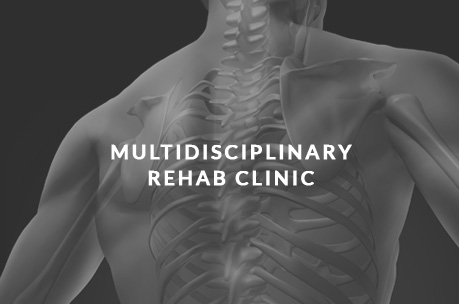Orthopaedic Rehabilitation Institute (ORI) is a multidisciplinary outpatient facility that aims to streamline both primary and private healthcare services.
O ur vision is to execute high quality evidence-based practices and provide equal opportunities for all patients with musculoskeletal injuries, complex trauma and TBI.
ORI is pleased to offer WSIB, EHC, MVA and Privately funded assessments and treatments in the following areas:
- Complex Trauma
- Pre-Operative Physical Therapy Assessment
- Post-Operative Physical Therapy
- Concussion Management
- Multidisciplinary Rehabilitation
- Rehabilitation Devices

About the Clinic
The vision of our Multidisciplinary Rehabilitation Clinic is to execute high-quality, evidence-based practices and provide equal opportunities for all patients with, TBI, musculoskeletal injuries, and complex trauma.
Learn MoreReferrals
Are you looking to make a referral?
Complex Trauma
For those who have suffered catastrophic injuries such as complex fractures, acquired or traumatic brain injuries, spinal cord injuries, amputation, and other debilitating injuries, the process to recovery can be overwhelming. In addition to recovery concerns, there may be legal, financial, or healthcare challenges that you may be unprepared to face.
At ORI, our interdisciplinary approach provides a detailed and clearly defined step-by-step discharge planning process to ensure a smooth and timely transition to your home and community. Our goal for this service is to efficiently use available resources, ensure continuity of care for better recovery outcomes, and avoid re-hospitalization.
There are two phases of complex trauma management:
- Pre-Discharge Planning:
Preparing to Leave Hospital Care - Post-Discharge Planning:
Community Reintegration
- Attend discharge meetings with the assigned Case Manager or OT to discuss care and adjustments needed to achieve patient-centered outcomes.
- Coordinate hospital discharge services such as organizing the type of assistive devices; medications; type of transportation required to take patient home, and the nurse or caregiver assigned to prepare patients for discharge from the hospital.
- Perform a home safety assessment to meet patient’s current needs on the patient’s environment and cover all bases to provide a smooth and comfortable transition from hospital care to independent living among the community.
- Treatment Planning – to ensure proper planning of services within the community, the patient’s multidisciplinary team is established based on their specific needs and patient-centered rehabilitative outcomes.
- Home Healthcare Planning – OT will be responsible for monitoring and following-up with patients to note their changes in condition and provide skills or devices to independently overcome any physical, emotional, or cognitive challenges patients may face within their environment at home or within the community.
- Personal Assistance Planning – in the case that the patient’s debilitating condition severely interferes with their ability to support themselves, patients may be eligible for personal support worker (PSW) services to assist with their activities of daily living such as cooking or cleaning.
- On-Going Coordination and Follow-up – Case Managers or OTs are responsible for monitoring patient progress from receiving relevant community services such as Physiotherapy, Occupational Therapy, Personal Support Worker, Speech-Language Pathology, Social Worker, and Psychology services. They are also responsible for addressing any changes in the patient’s functionality throughout their recovery.

